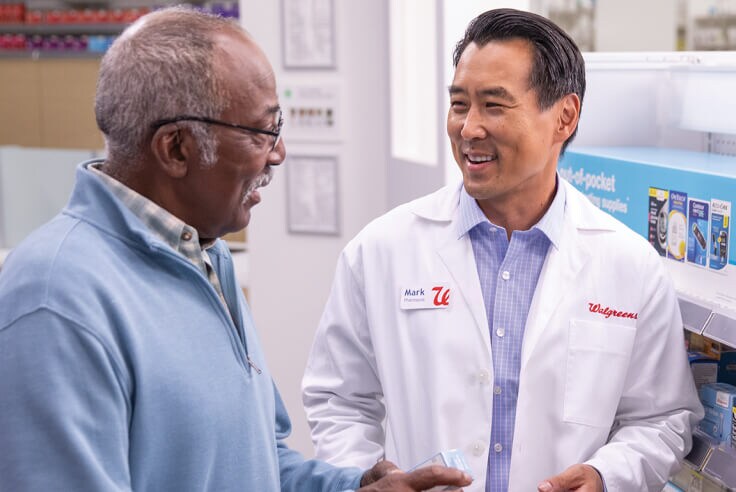

Sneezing and coughing? Not if we can help it
We have expert care to boost your immune system & help fight colds, flu and COVID-19. Cold season doesn’t stand a chance.
Seasonal & routine vaccinations
Testing and treatment
Schedule or order tests for COVID-19 and flu A & B.
Schedule or order tests for COVID-19 and flu A & B.
If you test positive for COVID-19 or flu, you may be eligible for antiviral treatment that helps prevent severe illness¹.
If you test positive for COVID-19 or flu, you may be eligible for antiviral treatment that helps prevent severe illness¹.


Women’s health matters
Comprehensive care at every stage, from first periods and fertility to breast health and menopause.
Women’s wellness essentials
If you believe you have a medical emergency, please call 911
All healthcare organizations listed in the Find Care tool have contracted with Walgreens to be listed on these webpages and to display information that they have provided about their services. All healthcare services are provided solely by independent healthcare provider organization listed, according to the particular organization’s own policies and terms. All healthcare provider organizations and their respective healthcare providers are not employees or agents of Walgreens or any Walgreens subsidiary or affiliate company.
Information about the listed healthcare organizations and their respective services is provided by the particular organization, and should not be viewed as a recommendation, endorsement, or guarantee by Walgreens. Walgreens is not responsible for, and disclaims all liability for the listed provider services.

Upcoming Appointments
Employment drug screen for Michael Stevenson
Thur, May 20, 2020 at 11:30am
Advocate
123 Main St., Chicago, IL 60661

Wellness

Get up to 80,000 points, earn $200--$400 in HRA/HSA credit, qualify for $0 Rx copay & more.















